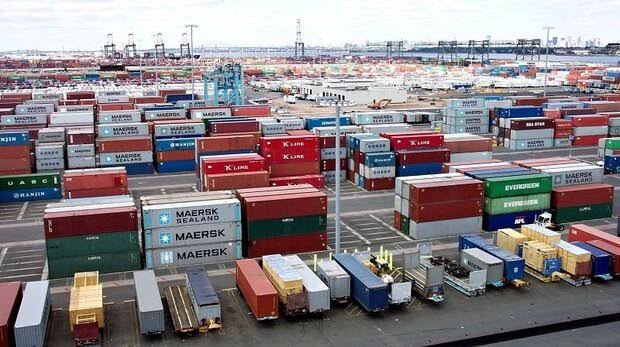The Nigerian government has said it is broadening its circle of trade and economic “friends,” but optimism around these alliances will remain ambitious without reliable infrastructure, lower production costs, and policy consistency, the experts have said.
At the 31st Nigerian Economic Summit in Abuja, Nigeria reiterated its plan to prioritise non-oil exports to subsidise its gross reliance on oil, which makes over 90 percent of its export goods and mainly finds it way to Europe and Asia.
“One important section of our new plan is expanding non-oil exports,” said Jumoke Oduwole, minister of Industry, Trade and Investment. “We’ve identified new friends, and we’ve also engaged strategically with old friends.”
Read also: Nigeria to build productive trade alliances with US – Tinubu
Experts see the promise but also gaps that need bridges. For the World Bank, Nigeria’s first priority should be to bring down inflation and interest rates to “allow citizens to feel the impact of economic reforms,” said Mathew Verghis, country director of the World Bank Group.
Omoboyede Olusanya, vice chairman of the Nigerian Economic Summit Group (NESG) said Nigeria could learn from Turkey, which transformed into a large export-based economy by developing domestic infrastructure and reducing production costs.
“Our cost of production is too high,” he said. Since the Nigerian government removed the subsidy on fuel in 2023, many businesses that relied on cheap fuel to replace inconsistent electricity supply have struggled to keep up. “Without infrastructure or power, there’s barely a foundation for competition,” Olusanya said.
Verghis at the World Bank Group compared Nigeria’s challenge to some Asian countries, including Bangladesh, Pakistan, and Sri Lanka that struggled to find respite for their citizens despite reforms.
“The key is investment in people,” he said. “To reach a $1 trillion economy, Nigeria needs to mobilise private capital and boost public revenue.” He explained that while some sectors are capital-intensive, they create fewer jobs than others, arguing that sectors like agribusiness can drive employment if properly supported.
In a TV interview in August, Oduwole had told CNN that it was “exploring other alternatives,” following the U.S tariff regime and the expiry of the African Growth and Opportunity Act (AGOA) in September.
Read also: How Africa can capitalise on US-EU trade dispute for growth
“Urea fertiliser is in high demand in Brazil. We have trading partnerships with China, with Japan, with the UAE and so we continue to look for opportunities for our Nigerian businesses,” Oduwole had said. This time, she said Japan has officially recognised Nigeria’s sesame exports, which accounts for 40 percent of the sesame imported into Japan in a government-to-government arrangement.
But the World Bank reckons that another “big bang” reform announcement, similar to the 2023 subsidy removal, could help attract investor confidence.
But Olusanya at NESG warned that Nigeria must create an environment where foreign investments come in with tenures and rates that make economic sense for the foreigner and indigene “The factors that draw foreign direct investment are the same ones that encourage domestic investors. Nigeria needs to create an environment where everyone can invest,” he said.
According to him, while the government can provide seed funding for large projects like the Lekki Port, private sector stability is essential for sustained investment, but they must be incentivised. “Private investors want assurance that their investments will yield returns.
He called for reforms in Customs operations, levies, and documentation procedures, saying Nigeria’s export competitiveness depends on its ability to meet quality standards and simplify trade processes.
Oduwole brought attention to Nigeria’s Single Window (NSW) project promised to take off in the first quarter of 2026 to unify and simplify trade processes for trade facilitation. That project is also expected to enhance the possibilities of the $3.6 trillion African Continental Free Trade Agreement (AfCFTA) market.
Read also: Traders of Africa unveil new alliance to connect businesses to global markets
She said that 24 percent of Nigeria’s exports in the first quarter of the year were to African countries, according to the CBN.
But Europe still remains a major trading partner for Nigeria. Gautier Mignot, head of the European Union Delegation to Nigeria and ECOWAS, noted that 26 percent of Nigeria’s foreign trade is with the EU.
“We’re in the middle of a rapid geopolitical shift, and Nigeria is the kind of partner we’re looking for,” he said.
In what he called “small steps strategy,” Mignot urged Nigeria to strengthen its institutions, especially in dispute settlement and trade infrastructure. “Keep insisting on reforms,” he advised.

